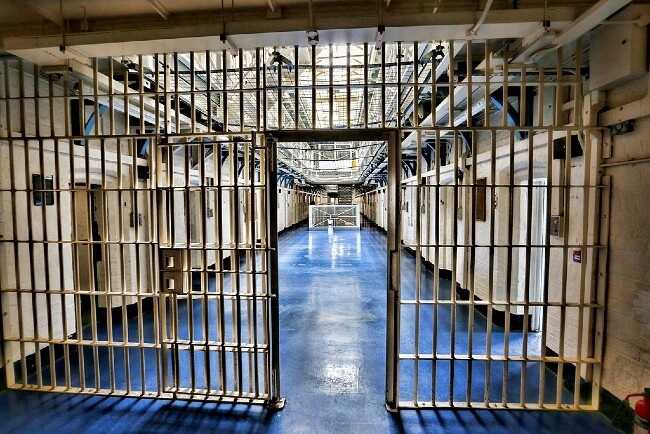Concerns mount over UK prisons nearing capacity before early release initiative starts

With Labour plan not coming into effect until September, ex-prison governor says emergency measures can only ‘keep a lid on things’
Prisons could still hit full capacity within weeks despite new emergency measures announced by Labour to release some prisoners early.
An unprecedented move to cut the time served in custody for most sentences to 40% will not come into effect until September, and officials fear that capacity will be overwhelmed by the end of August. The justice secretary has described the situation as a “ticking timebomb”.
A senior prisons source said they were “very worried” about an expected increase in inmates after the August bank holiday, warning that, with just 700 adult male prison places left in England and Wales, the estate was “very vulnerable to shocks”.
The official added: “That can be big, high-profile shocks, like the 2011 civil disorder or a prison riot, or it could actually be much more mundane things like an outbreak of bedbugs that would require us to close a wing and fumigate it for two or three weeks.”
An early release scheme started by the Conservative government is still running, while up to 200 police cells have been made available under Operation Safeguard to hold inmates temporarily. Two further contingencies are on standby if the crisis worsens.
Ian Acheson, a former prison governor, told the Observer that emergency plans prepared by the Ministry of Justice “can probably keep a lid on things – just”, but added: “It will be squeaky bum time for the next six weeks or so because I can’t see any immediate relief here. With Operation Safeguard clogging up police custody, we are one major public order event, like protests or football disorder, away from collapse.”
If prisons become completely full, criminals cannot be moved on from police cells and official modelling suggests that custody suites across the country would run out of space within three days, making normal arrest procedures impossible.
Behavioural forecasts commissioned by police chiefs predict unchecked criminality, such as looting, would break out, while offenders would feel able to breach bail and licence restrictions without consequence.
New measures announced by justice secretary Shabana Mahmood on Friday aim to ease pressure by releasing thousands more inmates early.
The change will be effected by cutting the automatic release point for most standard sentences from 50% to 40%, although serious violent offenders, as well as those jailed for sex offences, terrorism and crimes associated with domestic abuse, will be excluded from the scheme. The change cannot come into force until September because it requires secondary legislation to be voted on by parliament.
Announcing the move at HMP Five Wells in Northamptonshire, Mahmood accused the Conservatives of leaving “a ticking timebomb that has fallen on this government to defuse”. She added: “The capacity crisis will not disappear immediately – these measures take time to take effect. But when they do, they will give us the time we need to address the prisons crisis, not just today but for years to come.”
When asked if she was concerned about prisons hitting capacity before the new scheme comes into force, Mahmood acknowledged that the next six weeks were “going to be extremely difficult”, adding: “We moved at the first available opportunity. It has to be implemented and that takes some time.”
The new policy will replace the Conservatives’ early-release scheme, which has seen more than 10,000 prisoners freed up to 70 days early since its launch in October. It required decisions to be made by prison governors on individual cases, and communication and timing issues have been leaving probation officers struggling to put proper monitoring and public protection plans in place.
The new justice secretary has vowed to strengthen probation by recruiting at least 1,000 trainee officers by the end of next March, while tackling reoffending. Mahmood said the new government would also speed up prison-building and publish a 10-year capacity strategy this autumn.
But Andrew Neilson, director of campaigns at the Howard League for Penal Reform, told the Observer that the likelihood of prisons running out of space before September remains “very high”. “Early release is an immediate measure to buy breathing space but further steps will need to be taken to stop this happening again and again,” he said.
Experts are calling for ministers to develop policies to reduce the number of offenders flowing into prison and address overcrowding in the longer-term, following waves of laws to increase sentences and the proportion of time served in jail.
Penelope Gibbs, director of the Transform Justice charity, said: “We need to reduce the number of people imprisoned awaiting trial and those recalled after release. Most of all, we need to tackle the numbers of people we send to prison in the first place.”
Read more similar news:
Comments:
comments powered by Disqus

































